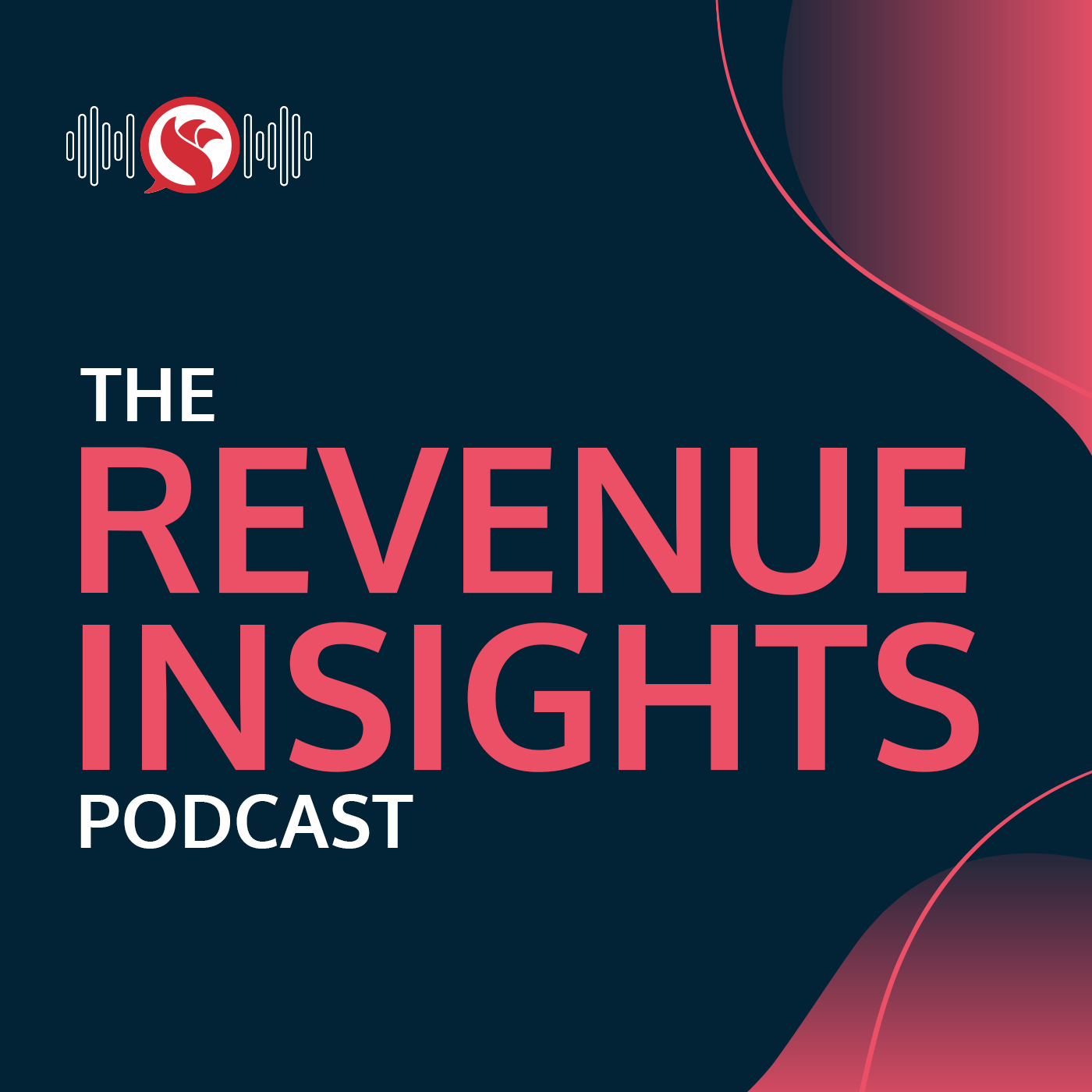Why Only 1 in 5 Reps Hit Quota—And How Data-Driven Leaders Fix It | Dieter Heren
July 3, 2025

In this episode of Revenue Insights, Adam Roberts chats with Popl VP of Sales Dieter Heren about evolving from RevOps to sales leadership, using AI without losing human connection, consolidating tech stacks, and building data-driven, efficient revenue teams.
In this episode of Revenue Insights, host Adam Roberts sits down with Dieter Heren, Vice President of Sales at Popl, to unpack the evolving role of revenue operations in today’s AI-first sales environment. Drawing on his rare transition from RevOps to frontline sales leadership, Dieter brings a tactical yet strategic lens to building high-performing teams that blend technical efficiency with human connection.
He dives into why consolidating fragmented tech stacks is more urgent than ever, how to leverage AI without losing the human element, and what it takes to drive cross-functional collaboration in a fast-changing sales landscape. From coaching B and C players to aligning RevOps with sales leadership, Dieter delivers a roadmap for revenue teams seeking profitable, sustainable growth in an increasingly complex environment.
Whether you're a RevOps leader stepping into a bigger role, a VP of Sales scaling with lean resources, or a GTM executive aiming to align data with outcomes, this episode offers actionable insights for leading with clarity in the next phase of revenue growth.
Ebsta is a revenue intelligence platform that helps B2B sales teams drive predictable growth by leveraging relationship and activity data. With real-time insights into pipeline health and sales performance, Ebsta empowers leaders to make informed, data-backed decisions. Find out more: https://www.ebsta.com/get-a-demo
- Dieter Heren on LinkedIn
- Popl website
- Adam Roberts on LinkedIn
- Ebsta Revenue Insights Newsletter
What You'll Learn:
- Why revenue operations is evolving from system admin to strategic growth driver
- How to transition from RevOps to sales leadership by leveraging technical fluency
- Why the “growth at all costs” model is giving way to efficient, profitable strategies
- How to consolidate tech stacks for clarity, control, and cleaner data
- When and how to use AI without losing the human side of sales
- The impact of coaching strategies tailored to B and C performers
- How to drive influence without authority across departments
- Why clean, centralized data is non-negotiable for AI implementation
- How in-person marketing and human trust are resurging amid digital saturation
- Why reporting lines for RevOps matter—and how alignment with the C-suite unlocks growth
Time Stamps:
- [00:00] Intro: The Evolution of RevOps and Modern Sales Leadership
- [03:34] From System Admin to Strategic Leader: A RevOps Journey
- [09:01] The Technical Evolution of Sales Leadership in the AI Era
- [11:20] The Paradox of AI Automation in Sales Outreach
- [14:44] Building Trust Through Human Connection in a Digital World
- [18:10] Using AI to Bridge the Performance Gap Between Top and Bottom Performers
- [22:56] Leading Without Authority: Cross-Functional Leadership Principles
- [25:46] The Shift from Point Solutions to Comprehensive Platforms
- [27:49] The Importance of Clean Data Architecture in Modern Sales
- [31:12] Quick Fire: RevOps Predictions and Industry Misconceptions
- [34:18] Key Takeaways and Final Thoughts
Highlights:
[03:34] Evolving Beyond System Administration in RevOps
Dieter Heren emphasizes that revenue operations must transition from basic system administration to driving strategic revenue impact. Too many RevOps professionals get stuck handling tickets and managing tools rather than focusing on business growth. The solution is to consistently tie RevOps work to measurable revenue outcomes and business impact. RevOps leaders should evaluate every project and system change through the lens of revenue generation and efficiency gains. Teams that make this shift will be better positioned to influence company strategy and growth rather than just maintaining systems.
[09:01] The Technical Evolution of Sales Leadership
The VP of Sales role has become increasingly technical, requiring leaders to understand and leverage technology for efficiency. Modern sales leaders must grasp how AI and automation tools can drive team performance and competitive advantage. The shift began with tools like Outreach but has accelerated dramatically with AI capabilities changing monthly. Success now requires balancing technical expertise with traditional sales leadership skills. Sales leaders who don't adapt to this technical evolution risk falling behind as technology becomes central to sales effectiveness.
[11:20] The Paradox of AI Automation in Sales
While AI promises efficiency gains, mass adoption of automated outreach has created overwhelming noise in digital channels. Initial efficiency gains from AI automation are being eroded as prospects tune out automated messages. This has led to a strategic shift back toward high-trust, in-person interactions that cut through digital fatigue. Smart teams are focusing on identifying high-intent prospects through AI signals while pursuing relationship-building through events and direct engagement. The key is using AI for internal efficiency while maintaining human connection in customer interactions.
[25:46] Consolidating Tech Stacks for Greater Impact
Companies are moving away from point solutions toward consolidated platforms that serve multiple needs. This shift recognizes that tool proliferation creates hidden costs in implementation, maintenance, and integration. Organizations need to evaluate technology investments based on their ability to serve core business goals rather than edge cases. The focus should be on building a streamlined, integrated tech stack rather than accumulating standalone tools. Success requires maintaining clean, complete data in a central system that can power AI and automation effectively.
Subscribe to the Revenue Insights Podcast:
Recommended Episodes:
The Revenue Insights Podcast is hand crafted by our friends over at: fame.so
Previous guests include: Namrata Ram of Slack, Jaclyn Balben if Bamboo Health, Mark Truman of EdgePetrol, Evan Liang of LeanData, Nicholas Ellis of InVision
Check out our 3 most downloaded episodes:
- Unifying your Go-to-Market Tech Stack with Namrata Ram, VP of Sales Strategy and Operations at Slack
- The Secret To Aligning Your GTM Function with Mark Truman, Chief Revenue Officer at EdgePetrol
- What You Need to Become a Successful Operations Leader with Jaclyn Balben, VP of Operations at Bamboo Health